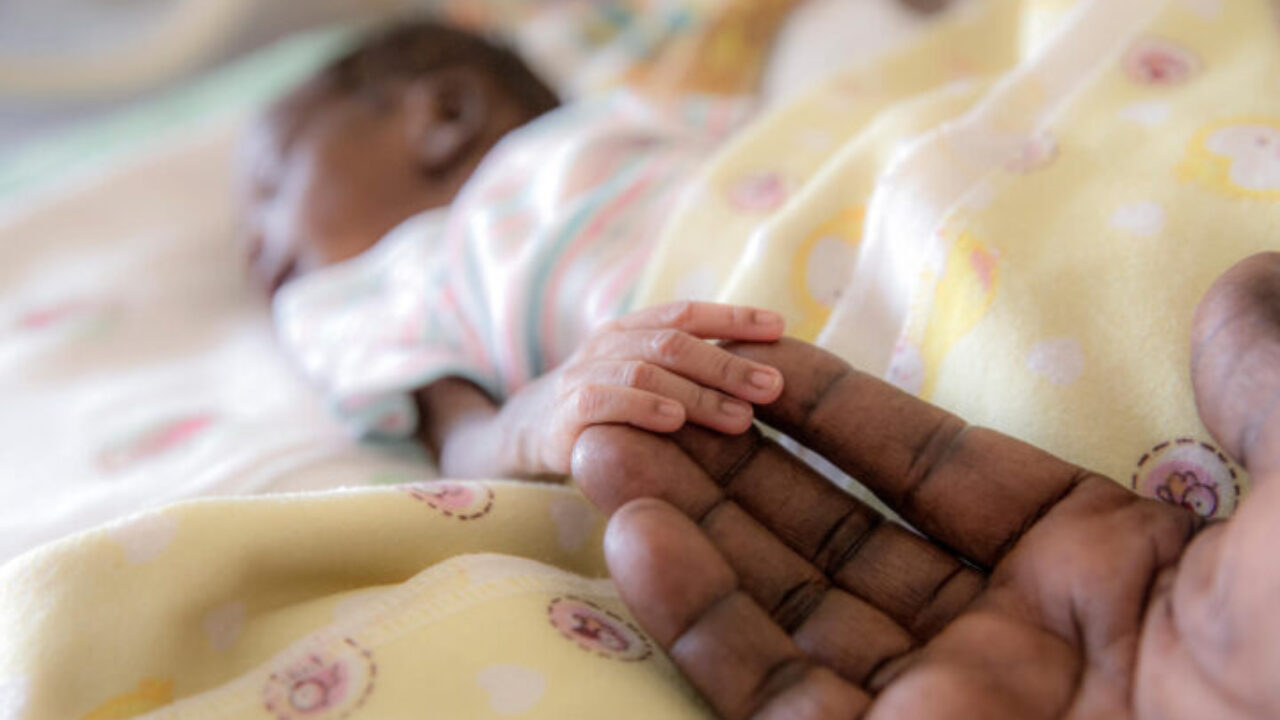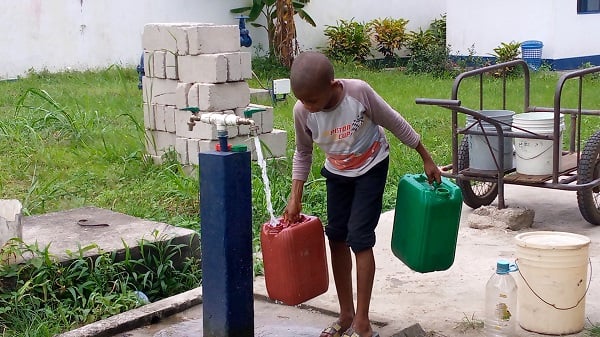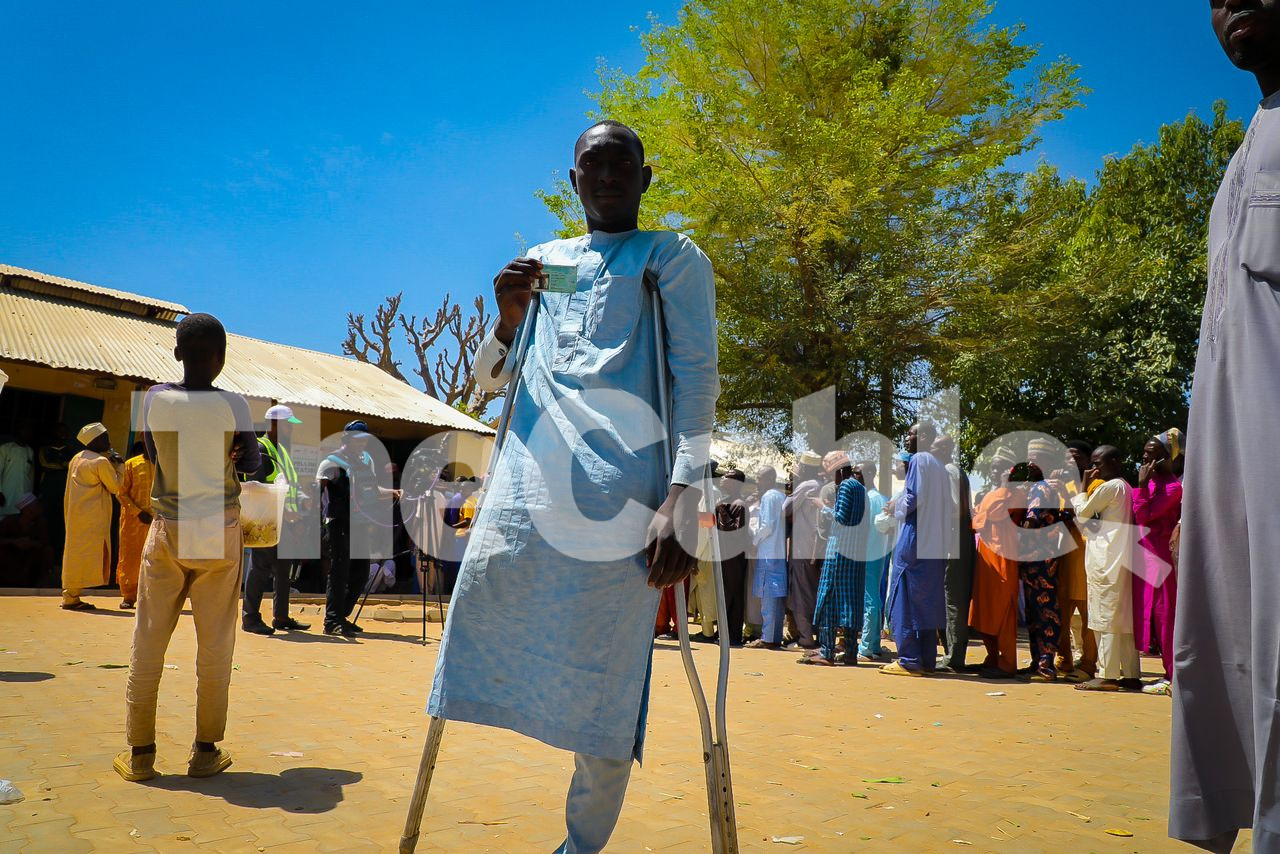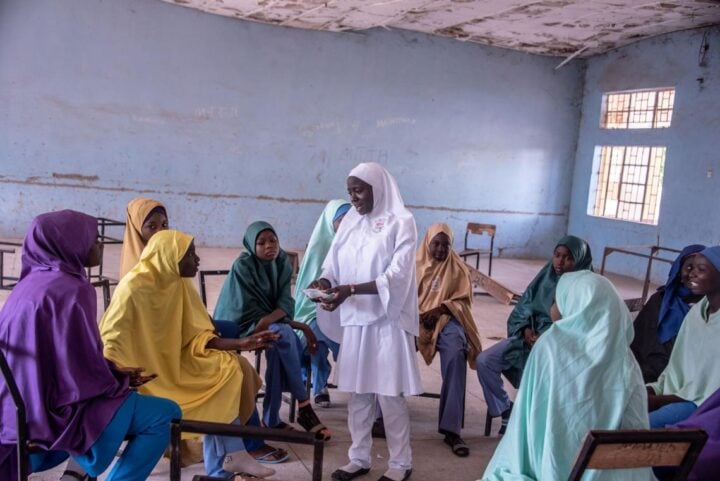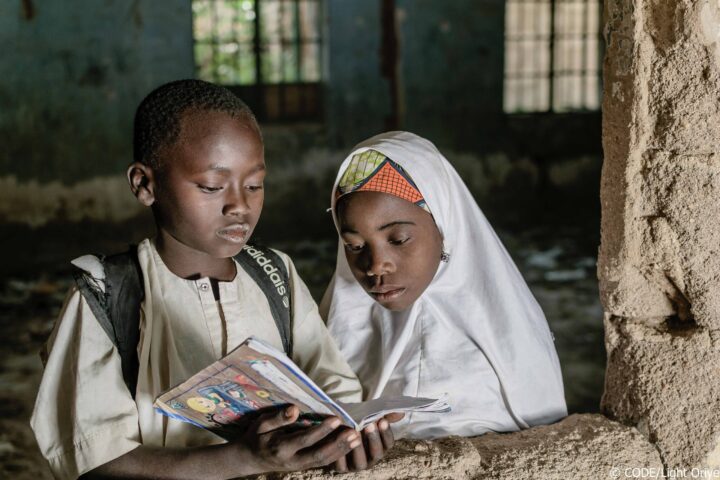Newborn infant boy Ayah, whose mother bled to death following his delivery and who suffers from jaundice and sepsis and weighs only 1.3 kilograms, has his hand held by his grandmother Await Said as he lies in an incubator at the Juba Teaching Hospital, Juba, South Sudan, Monday 29 January 2018. The hospital does not have the equipment to properly test and treat Ayah. According to the paediatrician on the ward, "if a baby needs anything more than basic treatment then there is nothing we can do. We are doing our absolute best but some things are simply out of our control”. More than 10% of infants that are born at the hospital's neonatal clinic die. South Sudan has some of the highest maternal and infant mortality rates in the world with one in 26 infants dying within 28 days of birth.
The United Nations Children’s Fund (UNICEF) says women should visit healthcare facilities with skilled workers for maternal care.
Aderonke Akinola-Akinwole, the UNICEF social behavioural change specialist, spoke on Saturday on the sideline of a media advocacy meeting by the National Orientation Agency (NOA), in collaboration with UNICEF.
The two-day programme held in Lagos.
Akinola-Akinwole said many parents who should have had a deep knowledge of what they were supposed to do to make their newborns stay alive and healthy, were not living up to the task.
Advertisement
“We encourage pregnant women to patronise the right health facilities where we have skilled healthcare givers including birth attendants, attend regular antenatal care and practise exclusive breastfeeding after delivery of their babies,” NAN quoted her saying.
“And most importantly, present them for the immunisations as required.”
She said not giving the right attention to children under two years affects their mental and body development, and in turn, creates problems for the families and society at large.
Advertisement
She also called on the media to educate members of the public within the child-bearing ages to cultivate healthy practices and support for their newborns.
Also speaking, Ada Ezeogu, a UNICEF nutritional specialist, said it is fundamental that children under two years are subjected to the right food and exclusive breast milk for six months.
She said the combination of other nutrient-rich food thereafter must not be compromised.
“The first 1,000 days is a golden window of a child’s mental and physical development because it is at that time that the brain is being built,” she said.
Advertisement
“There is, therefore, every need for a woman to be well nourished before, during and after pregnancy, as a child depends more on the mother for nutrient requirements, hence early initiation of breastfeeding is advised.
“Exclusive breastfeeding helps the child to develop mentally and physically, it is evidence on the child’s intelligence and general activities, as it’s an opportunity to ensure that they have a good start in life.
“The lack of vital nutrients from the point where pregnancy is confirmed and in the early stage of a child’s life results to problems such as stunted growth and wasting which is irreversible.”
Advertisement
Add a comment
